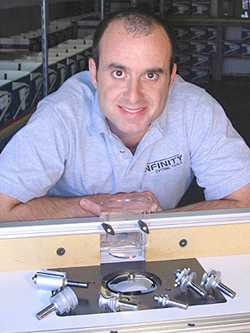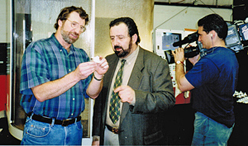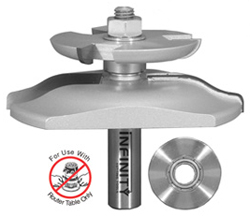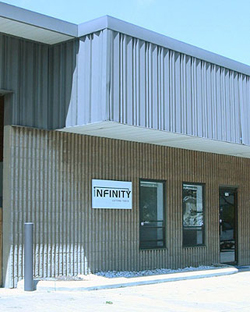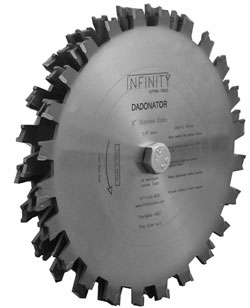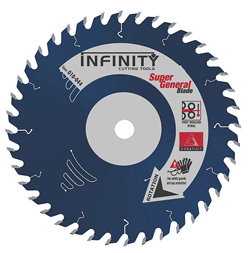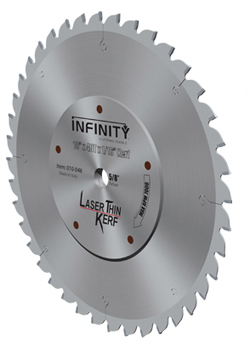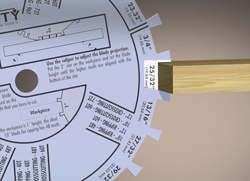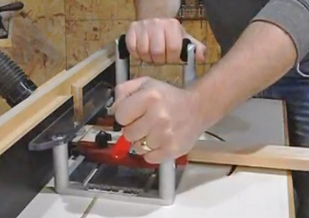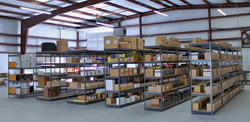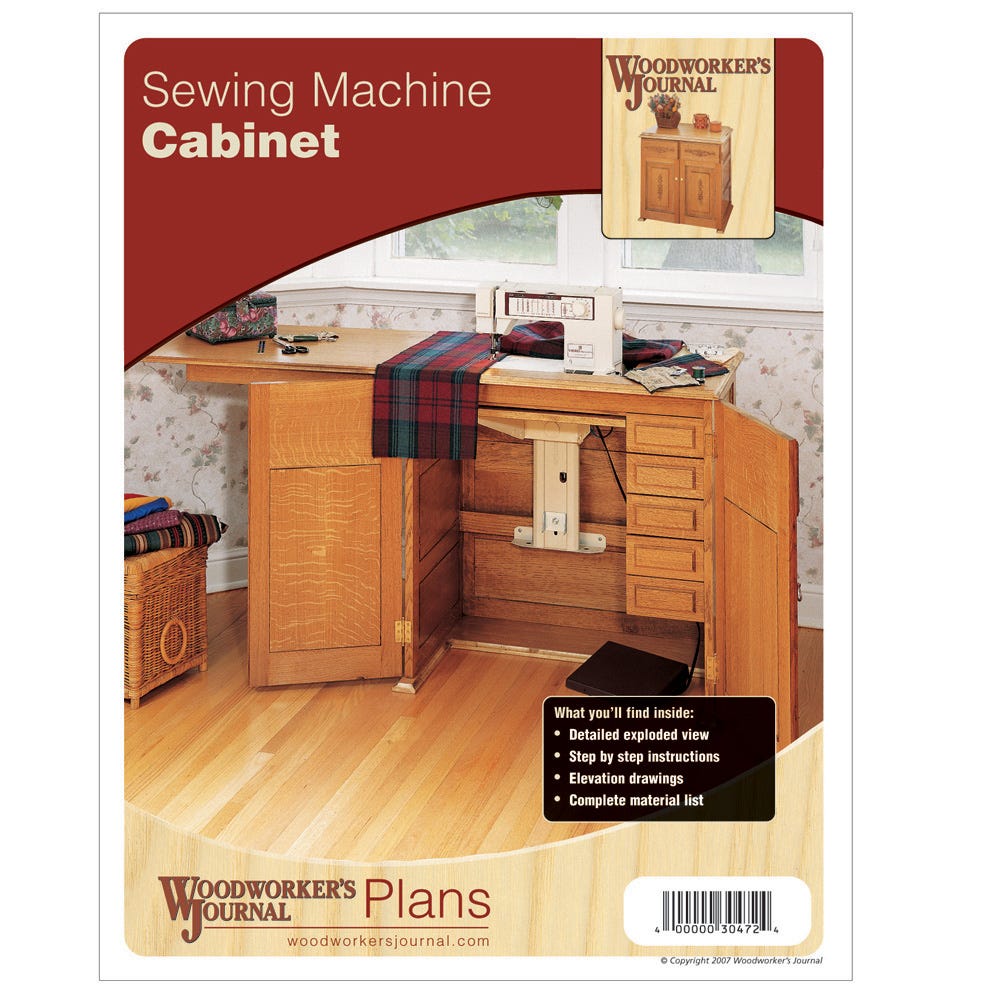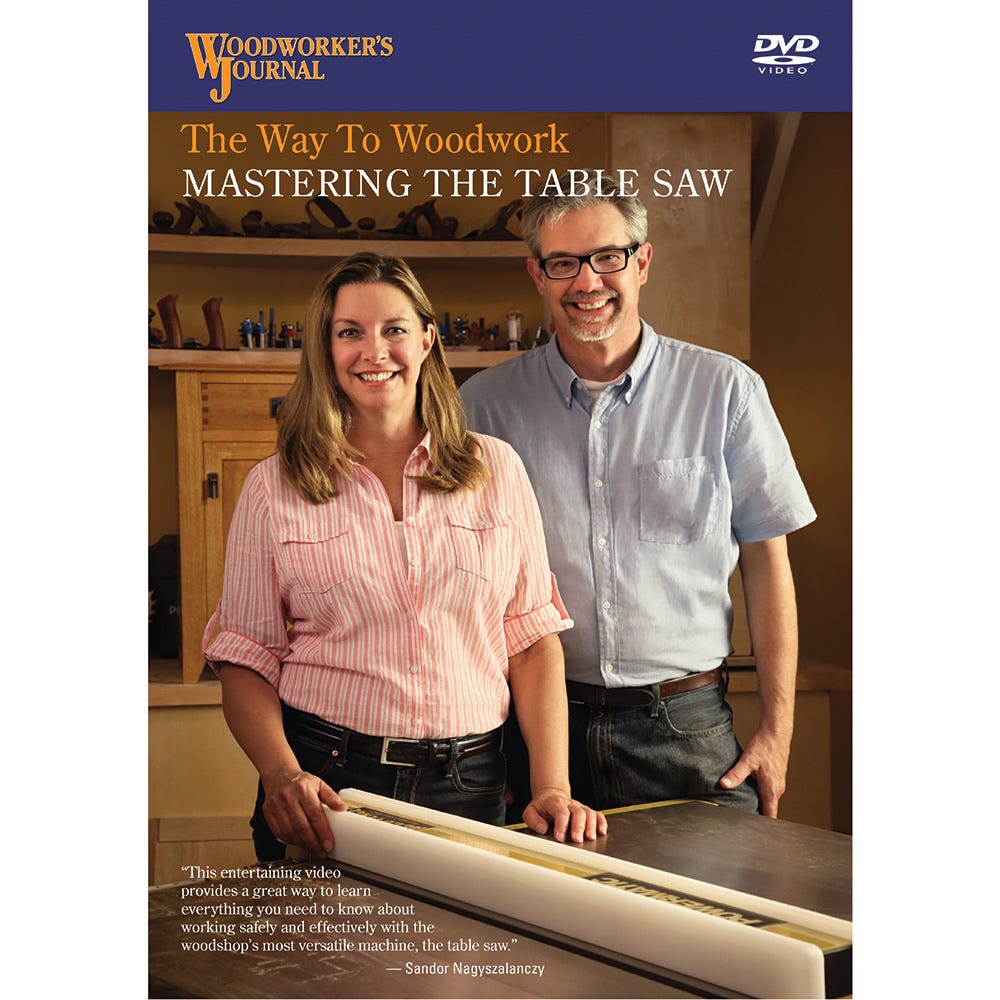
“I guess you could say I’ve been in the bits and blades business my whole life,” reflects David Venditto, president of Infinity Cutting Tools. “When I was just a boy, my dad would take me into his office at Freud on the weekends. I’d help him carry home those big, heavy reports so he could review them. He’d give me a ruler so I could hold it across the pages and read the lines of numbers for him.”
This was back in the 1980s when David’s father, Carlo, was president of Freud USA, Canada and Australia. As one can only imagine, there were a few weekly reports to read.
“My dad and uncle grew up in the town of Udine, in northeastern Italy, with a long tradition of woodworking and chair-building. Some of the finest saw blade manufacturing in the world grew from that trade to support the local woodworkers, and it’s where Freud got its start.”
While Carlo worked for Freud in the ’70s, the company wanted to expand to America. They sent him to Indiana to open Freud’s first U.S. office. It didn’t take long for the company to develop a woodworking following here in the States, and soon big orders were pouring in. The business expanded rapidly, and Freud moved its headquarters to North Carolina.
“Then in the late ’80s, my dad and uncle opened a woodworking retail store in Canada called Tool Trend. Freud felt that the store was a conflict of interest for Dad, so he left Freud and our family moved to Canada. Around that time, CMT (another Italian cutting tool company) wasn’t here in the U.S. yet either. They called my dad and asked him to do the same thing for them as he had done for Freud. So, we moved to Tampa, and Dad became the first president of CMT USA.” He hired Patrick Spielman, an expert woodworker and author of many woodworking books at the time, and the two men began to develop products together under the orange CMT label.
“CMT sales grew and grew. This was the early ’90s, and there was really no Asian competition in woodworking cutting tools at the time. My dad and a few others pretty much had a corner on that market here in the Americas.”
In the mid ’90s, Venditto recounts that Carlo built a 14,000-square-ft. manufacturing facility for CMT in Tampa’s Oldsmar suburb. Later, a separate marketing building would follow. He invested heavily in five-axis grinding machines in order to perfect the science of grinding tool carbide for router bits. It was a technology borrowed from the metalworking industry and, at the time, had never been employed for producing woodworking cutters. It was also around the time when David graduated college with a degree in economics. He went to work for his dad at CMT.
“Grinding carbide was a black art, really, and how you do it determines the cutting quality of the bit. There I was, trying to help my dad figure out these complex router bit grinds on brand-new technology for our industry. We produced some incredibly effective cutters, but the five-axis method was a nightmare to figure out! The whole thing was thrilling for me — a kid just out of college, and I was working six days a week in the cutting tool business.”
Eventually, David became production manager for CMT, but a rift over the manufacturing process developed between Carlo and CMT, which culminated in a lawsuit and a parting of ways. So, Carlo and son decided to take their cutter technology and form a new company: Jesada Tools. You might recall that they were the “white” bits of the day. And, if the curious-sounding name rings a bell, “it stood for my sisters and me,” David chuckles. “Jessica, Sabrina and David Je-Sa-Da.”
Around the turn of the millennium and after 30 years in the cutting tool business, Carlo decided to retire. He sold Jesada, “and suddenly I went from having tremendous responsibility with the company to pretty much consulting. I decided to go back to school. I went to England and earned my MBA.”
One of Jesada’s former employees started an offshoot cutting tool company called Infinity, intending to sell products only to dealers and not direct. David was living in Italy, trying to sort out what do next with his career.
Then 9/11 hit. “Infinity’s owner only had around 50 product SKUs at that time, and sales were marginal. The market plummeted, and the owner wanted out. He called me and said, ‘Here, you can have the business.’ This was around 2003. I took over his debt, to the owner’s great relief. Now I had my own company. I had a 1,000-square-foot space in Clearwater and pretty much worked part-time, because there were almost no sales,” Venditto recalls. “Jesada manufactured for me. Then, after a while, they went out of business.”
It took a few years, but David transformed the foundering Infinity from just 53 router bit profiles to offering more than 300. He went to Taiwan to locate a new manufacturing source that could produce to his specifications and standards. He also continued to source production from both Italy and the U.S., “which was the only way to do it then and now.”
The Infinity brand was gaining momentum. “In 2004, we launched our Dadonator dado blade, and it won all kinds of magazine awards.” With that acclaim, Infinity established itself as a quality woodworking blade manufacturer, and the blade line expanded. The rest, as they say, is history.
These days, David says Infinity offers several thousand different products, ranging from router bits, saw blades and shaper cutters to router tables and a growing selection of accessories. He feels the company is still pretty small when compared with other giants in the industry, “but there’s a LOT more competition these days. It’s tough to grow a business as fast as Dad grew CMT and Jesada.”
But, growth continues. Recently, David moved Infinity back into Jesada’s former marketing building in Oldsmar. Carlo still owns it, and while David says the 9,700-square-ft. space is much bigger than he currently needs, it’s like coming back home again. “My parents are now my landlords,” he says with a chuckle. “Moving back here, I was hit with an overwhelming wave of nostalgia … my first real work experience started in this building, back in the days when I actually still had hair! Here I am again.”
Venditto has high hopes for Infinity’s new location. It contains a full woodworking shop, and he would like to offer woodworking classes taught by guest experts in the future. He plans to continue developing “lots of different products,” even eventually hand tools. “I always want to try to offer new tools that woodworkers find value in … that’s what keeps me excited about a business I’ve been in for so long now. It validates what you’re doing.”
And however the business grows, David wants to maintain a family tradition of cutting tool excellence. “Dad always said, quality does not cost: it pays. That’s a truism I take very seriously.”
